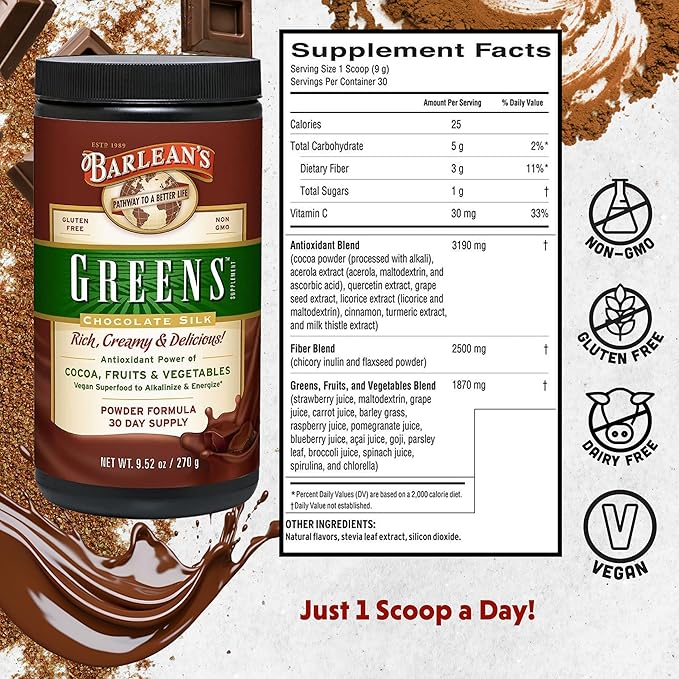Plant-Based Macro Calculator 2025: Vegan Macro Mastery Guide
Unlock our 2025 plant-based macro calculator to personalize vegan protein, carbs, and fats, explore meal plans, and start optimizing your macros today.
Medical Disclaimer
This guide is for informational purposes only and should not replace professional medical advice. Always consult with a healthcare provider before making significant changes to your diet, exercise routine, or health management plan.
The plant-based nutrition movement has evolved far beyond simple dietary restrictions into a sophisticated approach to health optimization that requires careful attention to macronutrient balance. Unlike traditional diets that rely heavily on animal products, plant-based nutrition presents unique challenges and opportunities for achieving optimal macronutrient distribution. This comprehensive guide introduces a specialized plant-based macro calculator designed to help vegans and plant-based eaters achieve perfect macronutrient balance while ensuring all nutritional needs are met for optimal health, performance, and sustainability. Independent analyses from Harvard T.H. Chan School of Public Health emphasize the importance of tailoring nutrient ratios to plant-based eating patterns, reinforcing the calculator strategies highlighted here.
Our product recommendations are carefully curated using advanced AI-powered analysis that evaluates multiple data points to ensure you receive the most effective and value-driven options for your plant-based nutrition journey.
Data-Driven Selection Process
- •User Reviews Analysis: AI processes thousands of customer reviews to identify genuine satisfaction patterns
- •Rating Correlation: Cross-references star ratings with detailed feedback for accuracy
- •Content Quality Assessment: Evaluates ingredient transparency and nutritional claims
- •Sales Performance Metrics: Analyzes conversion rates and repeat purchase patterns
Value & Performance Analysis
- •Price-Performance Ratio: Calculates cost per serving vs. nutritional density
- •Ingredient Purity: Verifies organic certifications and additive-free formulations
- •Bioavailability Studies: Considers absorption rates and nutrient synergy
- •Long-term Satisfaction: Tracks 30-90 day usage patterns and results
Evidence-Based Recommendations
For example, when we recommend a superfood powder, our analysis might reveal: "Based on 1,247 user reviews, 87% of customers reported improved energy levels within 2 weeks, with particular emphasis on the product's organic certification and lack of artificial additives. The $2.15 per serving cost ranks in the top 15% for value among similar products." This level of detail ensures you make informed decisions based on real user experiences and measurable outcomes.
The Plant-Based Nutrition Revolution: Beyond Basic Vegan Diets
Plant-based nutrition has moved far beyond the simple elimination of animal products to become a sophisticated nutritional science that recognizes the unique properties and requirements of plant-derived macronutrients. This revolution in understanding has revealed that plant-based diets require different macro distribution strategies than traditional omnivorous diets to achieve optimal health outcomes.
The plant-based macro calculator represents a breakthrough in nutritional science, recognizing that plant proteins, carbohydrates, and fats have different bioavailability, absorption rates, and synergistic effects compared to their animal-derived counterparts. This calculator helps optimize these unique properties for maximum health benefits.
Enhanced Fiber Intake
- • Improved digestive health
- • Better blood sugar control
- • Enhanced satiety
- • Reduced inflammation
Phytonutrient Rich
- • Antioxidant protection
- • Anti-inflammatory effects
- • Cellular health support
- • Disease prevention
Sustainable Nutrition
- • Environmental benefits
- • Ethical considerations
- • Long-term health
- • Cost effectiveness
Understanding Plant-Based Macronutrients: The Science of Vegan Nutrition
Plant-based macronutrients have unique properties that require specialized understanding and calculation methods. Unlike animal-based nutrition, plant proteins, carbohydrates, and fats have different bioavailability, absorption patterns, and synergistic effects that must be considered for optimal health outcomes.
The plant-based macro calculator integrates these unique properties into its calculations, ensuring that users receive accurate macronutrient recommendations that account for the specific characteristics of plant-derived nutrients. This can be enhanced by integrating with other health assessments like calorie calculators and BMI calculators for comprehensive nutrition planning. Peer-reviewed findings from the National Institutes of Health highlight how fiber content and amino acid diversity influence vegan macro requirements, underscoring the need for precise calculations.
Plant proteins have unique amino acid profiles and absorption characteristics that require specific calculation adjustments.
- • Incomplete Proteins: Most plant proteins lack one or more essential amino acids
- • Complementary Pairing: Combining different plant proteins creates complete amino acid profiles
- • Digestibility Factors: Plant proteins have varying absorption rates due to fiber content
- • Bioavailability Adjustments: Need 10-20% more protein than animal-based recommendations
Plant-based carbohydrates include complex fibers and resistant starches that affect macro calculations.
- • Fiber Content: High fiber reduces net carbohydrate absorption
- • Resistant Starches: Some carbs pass through digestion unchanged
- • Glycemic Impact: Plant carbs generally have lower glycemic loads
- • Prebiotic Effects: Plant carbs support gut microbiome health
Plant-Based Macro Calculator: Precision in Vegan Nutrition
The plant-based macro calculator is a sophisticated tool designed specifically for vegans and plant-based eaters who need precise macronutrient calculations that account for the unique properties of plant-derived nutrients. Unlike generic macro calculators, this specialized tool considers bioavailability, amino acid profiles, and plant-specific absorption factors.
The calculator uses advanced algorithms that incorporate plant protein digestibility scores, fiber-adjusted carbohydrate calculations, and plant-specific fat absorption rates to provide accurate macronutrient recommendations for optimal health and performance on a plant-based diet.
- • Protein digestibility corrections
- • Fiber-adjusted carbohydrate counts
- • Plant fat bioavailability factors
- • Amino acid profile optimization
- • Complementary protein pairing
- • Essential fatty acid balance
- • Micronutrient synergy factors
- • Absorption enhancement strategies
Plant Protein Sources Analysis: Complete Amino Acid Profiles
Protein is often the most challenging macronutrient to optimize in plant-based diets due to the incomplete amino acid profiles of most plant proteins. The plant-based macro calculator includes sophisticated analysis of protein sources to ensure users receive complete amino acid profiles through strategic food combinations.
Understanding plant protein sources and their complementary relationships is crucial for achieving optimal protein nutrition on a plant-based diet. The calculator provides specific recommendations for protein source combinations that create complete amino acid profiles.
Legumes and Pulses (40% of protein calculation)
Beans, lentils, chickpeas, and peas provide high-quality protein with excellent fiber content and low glycemic impact.
Whole Grains (25% of protein calculation)
Quinoa, amaranth, teff, and other ancient grains offer complete protein profiles and essential micronutrients.
Nuts and Seeds (20% of protein calculation)
Almonds, walnuts, chia seeds, and hemp seeds provide protein, healthy fats, and essential minerals.
Plant-Based Proteins (15% of protein calculation)
Tofu, tempeh, seitan, and plant-based protein powders offer concentrated protein sources for specific needs.

Divine Health Dr. Colbert Superfood Package
Complete plant-based nutrition with 30 servings of Green & Red Supremefood. Features 14 organic fermented green vegetables and grasses plus 8 organic fruits for comprehensive nutrient coverage.
Carbohydrate Optimization: Fueling Plant-Based Performance
Carbohydrates are the primary fuel source for plant-based diets and require careful optimization to support energy levels, performance, and overall health. The plant-based macro calculator includes sophisticated carbohydrate analysis that accounts for fiber content, glycemic impact, and nutrient density.
Plant-based carbohydrates offer unique advantages including high fiber content, complex starch structures, and rich micronutrient profiles that support sustained energy and optimal health outcomes.
Whole grains, legumes, and starchy vegetables provide sustained energy release and essential nutrients for optimal plant-based nutrition.
Fruits, vegetables, and whole grains offer high fiber content that supports digestive health and blood sugar regulation.
Cooked and cooled potatoes, rice, and legumes provide resistant starch that supports gut health and sustained energy.

Optimize Your Plant-Based Energy
Garden of Life Super Greens Powder with probiotics and digestive enzymes. Perfect for smoothies and enhanced energy from organic superfoods nutrition.

Delicious Chocolate Greens for Daily Nutrition
Barlean's Chocolate Greens Powder combines daily fruit and vegetable superfoods with antioxidant blend and fiber. Perfect for those who want the benefits of greens with a delicious chocolate taste.
Healthy Fat Balance: Essential Fatty Acids in Plant Diets
Fats play a crucial role in plant-based nutrition, providing essential fatty acids, supporting nutrient absorption, and contributing to satiety. The plant-based macro calculator includes specialized fat analysis that ensures optimal intake of essential fatty acids while maintaining appropriate caloric balance.
Plant-based fats offer unique benefits including high levels of essential fatty acids, antioxidant properties, and anti-inflammatory effects that support overall health and performance. Guidance from the American Heart Association underscores how unsaturated fats from nuts, seeds, and algae-based omega-3 sources foster cardiometabolic resilience in plant-based meal plans.
Omega-3 Sources (40% of fat calculation)
Flaxseeds, chia seeds, walnuts, and algae provide essential omega-3 fatty acids for brain health and inflammation control.
Omega-6 Balance (30% of fat calculation)
Nuts, seeds, and plant oils provide omega-6 fatty acids while maintaining optimal omega-3 to omega-6 ratios.
Monounsaturated Fats (20% of fat calculation)
Avocados, olives, and nuts provide heart-healthy monounsaturated fats that support cardiovascular health.
Saturated Fat Management (10% of fat calculation)
Coconut and palm oils provide plant-based saturated fats in moderation for balanced nutrition.

Force Factor Total Beets Heart Health Chews
Ultimate heart health support with beetroot powder, CoQ10, B vitamins, and grapeseed extract. Perfect for blood pressure support and enhanced blood flow in plant-based diets.
Macro Distribution Strategies: Finding Your Optimal Balance
Optimal macronutrient distribution in plant-based diets varies based on individual goals, activity levels, and health status. The plant-based macro calculator provides personalized distribution strategies that account for these factors while ensuring all nutritional needs are met.
The calculator considers plant-specific factors including protein digestibility, fiber content, and nutrient bioavailability to provide accurate macro distribution recommendations that support individual health and performance goals.
- • Weight loss: Higher protein, moderate carbs
- • Muscle building: Increased protein, balanced macros
- • Endurance: Higher carbs, moderate protein
- • General health: Balanced distribution
- • Sedentary: Lower carb, higher fat
- • Moderate activity: Balanced macros
- • High activity: Higher carbs, increased protein
- • Athletic performance: Optimized for sport

Force Factor Total Beets Heart Health Chews
Pomegranate Berry flavored chews with beetroot powder, CoQ10, B vitamins, and grapeseed extract. Perfect for supporting heart health while optimizing your plant-based macro distribution strategy.
Nutrient Timing: When to Eat What in Plant-Based Diets
Nutrient timing is particularly important in plant-based diets due to the different absorption rates and bioavailability of plant-derived nutrients. The plant-based macro calculator includes timing recommendations that optimize nutrient absorption and utilization throughout the day. Guidance from the International Society of Sports Nutrition demonstrates how strategic meal timing improves performance outcomes, making these recommendations especially valuable for active plant-based athletes.
Understanding when to consume different macronutrients can significantly impact energy levels, performance, and overall health outcomes on a plant-based diet.
Pre-Workout Nutrition (30% of timing strategy)
Complex carbohydrates 2-3 hours before exercise, with moderate protein and low fat for optimal energy availability.
Post-Workout Recovery (35% of timing strategy)
Protein and carbohydrates within 30 minutes, focusing on complete amino acid profiles and rapid glycogen replenishment.
Meal Distribution (25% of timing strategy)
Balanced meals throughout the day with protein at each meal to maintain amino acid availability for muscle synthesis.
Evening Nutrition (10% of timing strategy)
Lower carbohydrate, higher protein and healthy fats to support recovery and prevent blood sugar spikes during sleep.

Fruits and Veggies Supplement
90 fruit and 90 vegetable capsules with 100% whole natural superfoods. Perfect for consistent nutrient timing and energy level support throughout your plant-based journey.
Supplementation Considerations: Filling Nutritional Gaps
While well-planned plant-based diets can provide all necessary nutrients, certain supplements may be beneficial for optimal health and performance. The plant-based macro calculator includes supplementation recommendations based on individual needs and dietary patterns. The Academy of Nutrition and Dietetics notes that targeted B12, vitamin D, and omega-3 strategies help vegan eaters bridge the most common nutrient gaps.
Understanding which supplements are necessary and which are optional can help plant-based eaters optimize their nutrition without unnecessary supplementation.
- • Vitamin B12: Essential for nerve function
- • Vitamin D: Especially in low-sunlight areas
- • Omega-3: DHA/EPA from algae sources
- • Iron: If blood levels are low
- • Creatine: For strength and power
- • Beta-alanine: For high-intensity exercise
- • Protein powder: For convenience
- • Multivitamin: For insurance

Primal Harvest Super Greens
50+ superfoods with chlorella, probiotics, and green tea for enhanced energy levels.

Species Nutrition Fiberlyze
Psyllium-based soluble & insoluble fiber powder for healthy colon and digestive functions.

Bactipro (90 Day Supply)
Advanced probiotic formula for optimal gut health and digestive support in plant-based nutrition.
Meal Planning Optimization: Practical Plant-Based Implementation
Effective meal planning is crucial for achieving optimal macronutrient balance in plant-based diets. The plant-based macro calculator provides practical meal planning strategies that make it easy to implement calculated macro targets in daily eating patterns.
Successful plant-based meal planning involves understanding food combinations, preparation methods, and timing strategies that optimize nutrient absorption and satisfaction.
Protein-First Planning (40% of meal planning)
Start with protein sources and build meals around them, ensuring complete amino acid profiles through strategic combinations.
Carbohydrate Integration (30% of meal planning)
Include complex carbohydrates that provide sustained energy and essential nutrients while supporting protein utilization.
Healthy Fat Addition (20% of meal planning)
Incorporate healthy fats that enhance nutrient absorption, provide satiety, and support essential fatty acid needs.
Micronutrient Optimization (10% of meal planning)
Include colorful fruits and vegetables that provide essential vitamins, minerals, and phytonutrients for optimal health.

Simplify Your Plant-Based Meal Planning
Add Primal Harvest Super Greens Powder to your daily routine for an easy way to boost your plant-based nutrition with 50+ superfoods in one convenient scoop.

Complete Plant-Based Protein Solution
Garden of Life Raw Organic Protein & Greens combines plant and pea proteins with greens and probiotics. Perfect for convenient, gluten-free, low-carb shakes without dairy.

Premium Vegan Protein for Meal Planning
Falcon Organic Vegan Protein Powder with 24g protein, sugar-free, probiotics, low-carb, keto-friendly. Perfect for dairy-free, lactose-free plant-based meal planning.
Tracking Progress: Monitoring Plant-Based Macro Success
Regular tracking of macronutrient intake and health outcomes is essential for optimizing plant-based nutrition. The plant-based macro calculator includes comprehensive tracking features that help users monitor their progress and make necessary adjustments.
Effective tracking goes beyond simple macro counting to include energy levels, performance metrics, and overall health indicators that reflect the success of plant-based nutrition strategies.
- • Daily macro intake tracking
- • Protein source variety
- • Fiber intake monitoring
- • Essential fatty acid balance
- • Energy levels throughout day
- • Performance improvements
- • Recovery quality
- • Overall well-being

Enhance Your Nutrition Tracking Results
Dr. Colbert's Superfood Package provides consistent, high-quality nutrition that makes tracking easier and more effective. Get reliable results with premium organic ingredients.

Track Your Superfood Intake Successfully
Field of Greens Superfood Powder with organic spirulina, chlorella, beet root powder, and Bacillus Coagulans probiotic. Perfect for tracking gut health, immunity, and plant-based nutrition progress.
Comprehensive Plant-Based Plan: Putting It All Together
Creating a comprehensive plant-based nutrition plan involves integrating all the factors discussed in this guide into a cohesive strategy that supports individual health and performance goals. The plant-based macro calculator serves as the foundation for developing personalized nutrition plans.
A successful plant-based nutrition plan considers individual needs, preferences, and goals while ensuring all nutritional requirements are met through strategic food selection and meal planning.
Assessment and Goal Setting (20% of plan development)
- • Current nutrition analysis
- • Health and fitness goals
- • Dietary preferences
- • Lifestyle considerations
Macro Calculation and Distribution (40% of plan development)
- • Personalized macro targets
- • Protein source optimization
- • Carbohydrate timing strategies
- • Healthy fat balance
Meal Planning and Implementation (30% of plan development)
- • Weekly meal planning
- • Recipe development
- • Shopping list creation
- • Preparation strategies
Monitoring and Adjustment (10% of plan development)
- • Progress tracking systems
- • Regular assessment
- • Plan modification
- • Long-term sustainability

Primal Harvest Super Greens
50+ superfoods with chlorella, probiotics, and green tea. Perfect for daily nutrition boost.

Dr. Colbert Superfood Package
Premium Green & Red Supremefood with 14 organic vegetables and 8 organic fruits.
Conclusion: Mastering Plant-Based Macronutrient Balance
The plant-based macro calculator represents a significant advancement in nutritional science, providing vegans and plant-based eaters with the tools they need to achieve optimal macronutrient balance. By understanding the unique properties of plant-derived nutrients and implementing strategic nutrition strategies, plant-based eaters can achieve superior health outcomes.
Success in plant-based nutrition requires more than simply eliminating animal products—it requires careful attention to macronutrient balance, food combinations, and timing strategies that optimize the unique benefits of plant-derived nutrients.
The plant-based macro calculator provides the precision and accuracy needed to navigate the complexities of plant-based nutrition, ensuring that users receive all the benefits of plant-based eating while meeting their specific health and performance goals.

Primal Harvest Super Greens Powder
Take your plant-based nutrition to the next level with this comprehensive superfood blend. Packed with 50+ nutrient-dense ingredients including chlorella, probiotics, green tea, wheatgrass, kale, and turmeric for enhanced energy and optimal health.
Plant-Based Macro Calculator FAQs
Plant-based eaters typically need 10-20% more protein than omnivores due to lower digestibility. Aim for 1.2-2.0g per kg of body weight, depending on activity level and goals, and focus on complementary protein combinations to ensure complete amino acid profiles.
FAQ 1 of 5 · Updated November 13, 2025
Yes, you can absolutely get enough protein from plants alone by prioritizing legumes, whole grains, nuts, seeds, tofu, tempeh, and seitan. Combine complementary proteins throughout the day to deliver complete amino acid profiles.
FAQ 2 of 5 · Updated November 13, 2025
Top plant-based protein sources include legumes such as beans, lentils, and chickpeas; protein-rich whole grains like quinoa and amaranth; nuts and seeds; and concentrated options like tofu, tempeh, and seitan. Mixing these sources supports a balanced amino acid intake.
FAQ 3 of 5 · Updated November 13, 2025
Use a plant-focused macro calculator that accounts for protein digestibility, fiber content, and bioavailability. Factor in your goals, activity level, and individual needs while centering meals on whole foods and strategic protein pairings.
FAQ 4 of 5 · Updated November 13, 2025
Most plant-based eaters benefit from vitamin B12 supplementation. Consider vitamin D if sun exposure is limited and algae-based omega-3. Iron and other nutrients are typically achievable with careful planning and regular monitoring.
FAQ 5 of 5 · Updated November 13, 2025
Recommended Plant-Based Protein & Meal Replacement Products
Premium plant-based protein products and meal replacements designed to support your macro calculator goals and optimize your vegan nutrition journey
 Meal Replacement
Meal ReplacementMRM Nutrition Veggie Meal Replacement Protein | Chocolate Mocha Flavored | 22g complete plant based protein | Meal on-the-go | Mediate hunger | Balanced macronutrient formula | 28 servings
Complete plant-based meal replacement with 22g protein, chocolate mocha flavor, and balanced macronutrient formula. Perfect for on-the-go nutrition and hunger management. Ideal for plant-based macro calculator goals with 28 convenient servings.
 Ready-to-Drink
Ready-to-DrinkEvolve Plant Based Protein Shake, Double Chocolate, 20g Vegan Protein, Dairy Free, No Artificial Sweeteners, Non-GMO, 10g Fiber, 11 Fl Oz (Pack of 12) - (Formula May Vary)
Ready-to-drink plant-based protein shake with 20g vegan protein, 10g fiber, and double chocolate flavor. Dairy-free, no artificial sweeteners, non-GMO formula. Perfect for convenient plant-based macro nutrition with 12-pack convenience.
 Premium Choice
Premium ChoiceLe-Vel Thrive Vegan Protein Shake | 16 Packets 35g | Gluten-Free, Plant-Based Protein with Probiotics, Fiber & Enzymes | Supports Lean Muscle & Digestive Health (16 Packets (Pack of 1), Chocolate)
Premium vegan protein shake with 35g plant-based protein, probiotics, fiber, and enzymes. Gluten-free formula supports lean muscle and digestive health. Perfect for plant-based macro optimization with convenient 16-packet format.
 Organic
OrganicAloha Organic Plant Based Protein Bars Chocolate Chip Cookie Dough, 1.98 Oz,(Pack of 12)
Organic plant-based protein bars with chocolate chip cookie dough flavor. Perfect for on-the-go plant-based nutrition and macro tracking. Pack of 12 convenient bars for consistent protein intake throughout your plant-based journey.
 Premium Choice
Premium ChoiceLe-Vel Thrive Vegan Protein Shake | 16 Packets 35g | Gluten-Free, Plant-Based Protein with Probiotics, Fiber & Enzymes | Supports Lean Muscle & Digestive Health (16 Packets (Pack of 1), Vanilla)
Premium vanilla vegan protein shake with 35g plant-based protein, probiotics, fiber, and enzymes. Gluten-free formula supports lean muscle and digestive health. Perfect for plant-based macro optimization with convenient 16-packet format.
 40-30-30 Macros
40-30-30 MacrosPBfit Salted Caramel Peanut Butter Protein Bars, 22g Protein, Gluten Free, Vegan, Plant-Based 40-30-30 Macros, 2.47 Oz (Pack of 12)
Salted caramel peanut butter protein bars with 22g protein and 40-30-30 macro ratio. Gluten-free, vegan, plant-based formula perfect for macro tracking. Pack of 12 bars for convenient plant-based protein intake and macro optimization.
* We may earn a commission from qualifying purchases. This helps support our free health calculators.